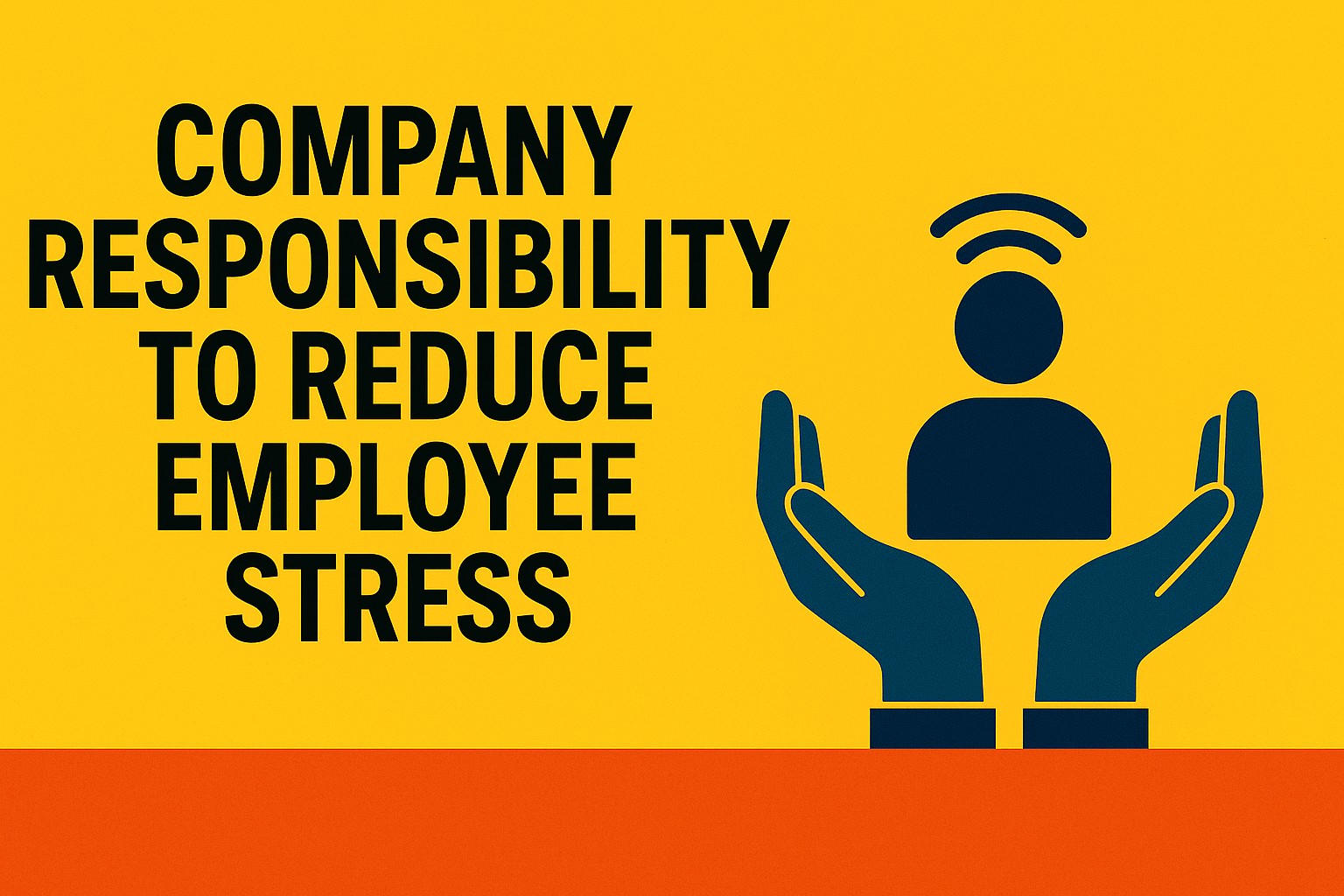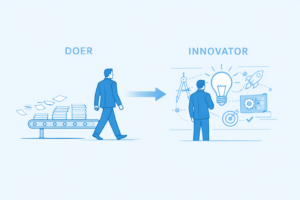‘You don’t have to adopt AI. But soon, you might have to explain why you didn’t.‘
That sentence has been sitting with us since we wrote our last blog on employer responsibilities around stress. Because as generative AI becomes the defining business shift of our generation, a big question is starting to loom:
Could ignoring AI become a breach of the law?
Let’s take a closer look…
1. No One’s Forcing You… Yet
Let’s be clear: as of now, there’s no specific law that says you must use AI.
There’s no statute that forces insolvency practitioners, accountants, or business owners to adopt AI tools like VAi, or face penalties. So, legally speaking, you’re not breaking the law by ignoring it.
But here’s the catch…
… Just because something isn’t illegal yet doesn’t mean it isn’t irresponsible. And in some circumstances, it could already be edging into dangerous territory – particularly if staff are suffering as a result.
2. Employers Have a Legal Duty to Reduce Stress
As covered in our last blog, UK employers are already under very clear obligations:
- The Health and Safety at Work Act 1974 requires employers to ensure their employees’ health, safety, and welfare as far as is reasonably practicable.
- The Management of Health and Safety at Work Regulations 1999 demand risk assessments for work-related stress and action to reduce those risks.
Here’s a blog I found useful: click here.
Now imagine this scenario:
- You know your staff are stressed.
- You’ve read about AI tools that can take 20% to 30% of theire work off their plates.
- You’ve seen peers using AI to reduce workload, speed up routine tasks, and improve file quality.
- But you choose to ignore it, you have not evaluated, not trialed, not even considered it.
In that context, it becomes much harder to argue you’re doing ‘everything reasonably practicable’ to support staff welfare.
3. There’s Also a Duty to Equip Staff Properly
Employers also have a common law duty of care, and under employment law, a responsibility to give staff the tools and support they need to do their jobs well.
Let’s face it: asking staff to keep up with spiralling workloads while refusing to modernise their toolkit is like asking a bricklayer to build a house with a spoon.
As AI becomes a mainstream business tool, ignoring it isn’t just inefficient – it could soon be seen as negligent.
4. Don’t Forget Your Director Duties
Under the Companies Act 2006, directors have a legal duty to act in a way that promotes the success of the company.
If AI can reduce stress, cut costs, improve productivity, enhance accuracy, and support client service – and you still refuse to engage with it?- are you really promoting the long-term success of the business?
You see, this isn’t just a health and safety issue. It’s a governance one too.
5. The Moral and Commercial Case Has Already Been Won
Even if the legal argument isn’t watertight yet, the moral and commercial one is.
- AI can reduce stress by handling repetitive, time-draining tasks.
- AI can boost staff retention by making their lives easier and their work more rewarding.
- AI can reduce mistakes, help manage caseloads, and support better outcomes for clients.
- And AI like VAi can do it today, without needing to overhaul your systems or hire extra staff.
What reason is left not to use it?
6. Conclusion: This Isn’t Optional for Much Longer
AI isn’t a trend. It’s the biggest workplace shift since the internet, even the Industrial Revolution.
Employers who continue to ignore it aren’t being cautious. They’re being careless – with their staff’s wellbeing, their business’s future, and possibly even their legal responsibilities.
You don’t have to adopt AI. But if someone asks why you didn’t, what will you say?
Need help getting started in insolvency? Call Paul on 07813 102014 or email paul@vaisolutions.co.uk.
Your future self (and your staff) will thank you.






